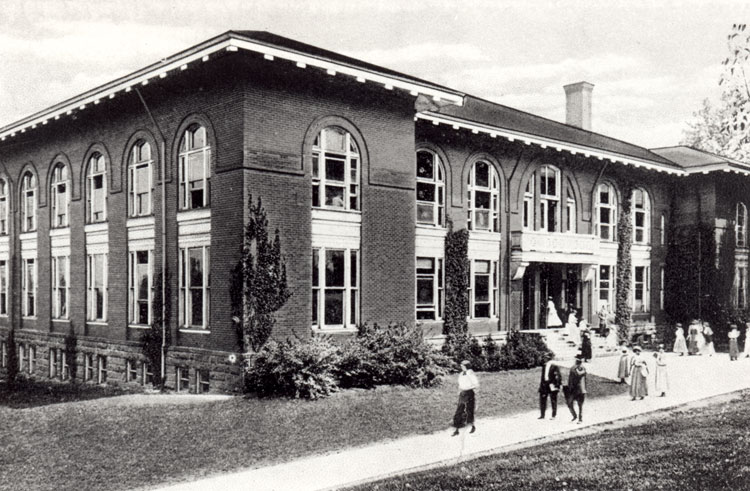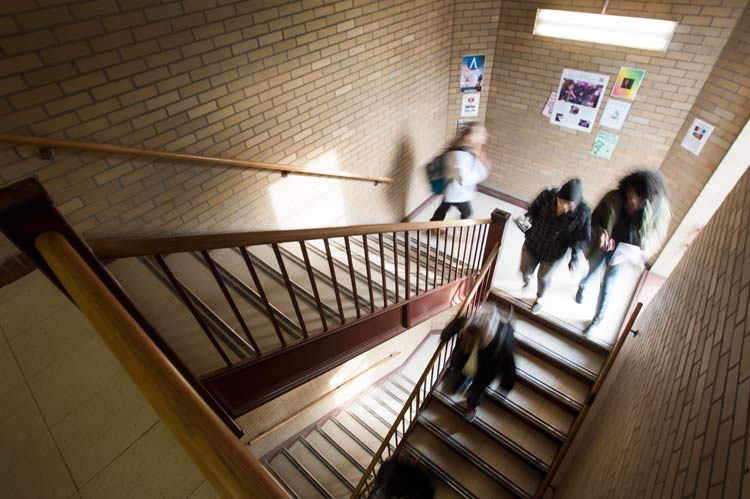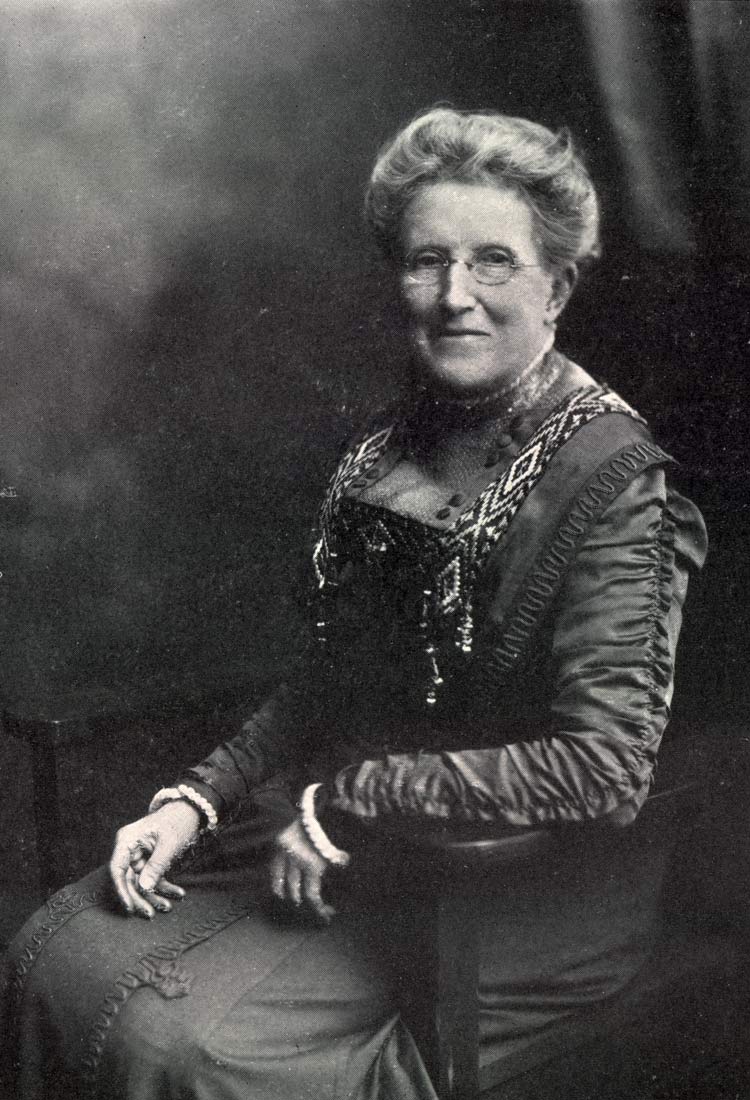
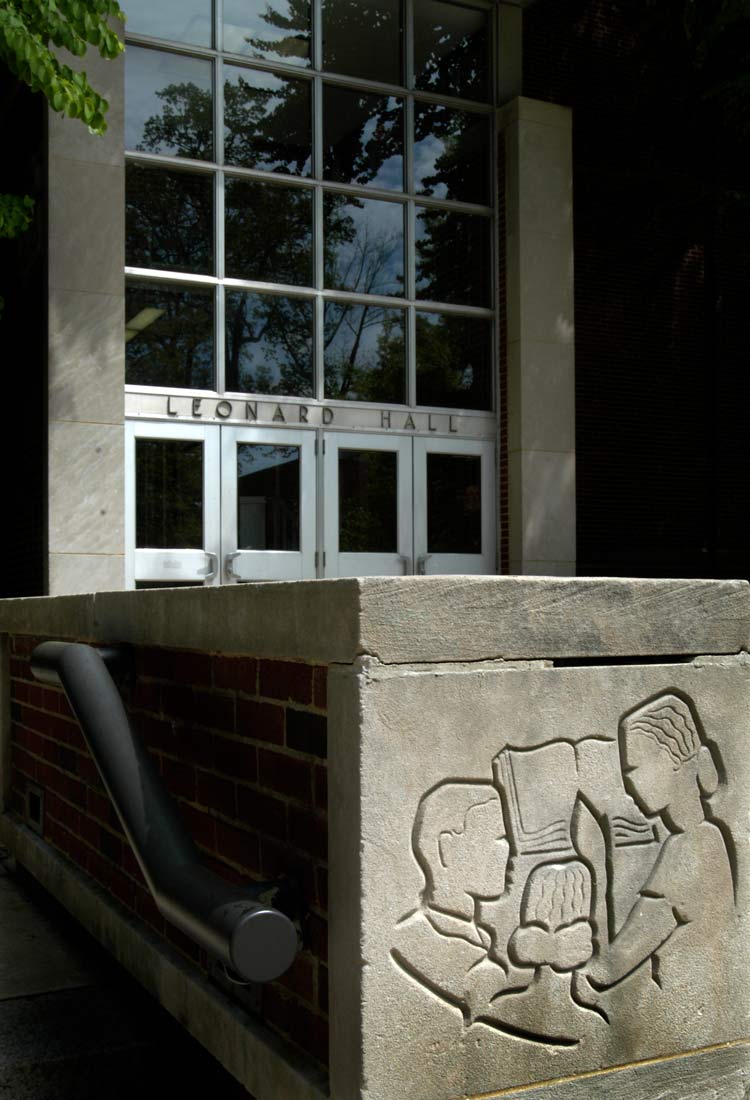
Left: Jane Leonard, from the 1912 Instano yearbook. At right, a recent view of the building named for her. Photo: Keith Boyer
Normal School Preceptress Inspired Thousands
Jane Leonard likely fretted over job security in the early days of IUP, when financial woes plagued the school and, according to historical accounts, the Indiana County sheriff on more than one occasion knocked on the institution’s doors and demanded payment.
In a sublime bit of irony, Leonard wound up working for 46 years at a college that very nearly foundered not long after its founding. She was a faithful servant who lived to see Indiana Normal School not only survive, but thrive.
Leonard emerged as a towering figure at INS, serving as preceptress—analogous to a dean of women—and teaching, at various times, English literature, history, and geography. The affection others held for their beloved “Aunt Jane” is apparent in the multitude of letters sent to campus following her death and later bound into a thick memory book preserved in IUP’s Special Collections and Archives. In page after page, alumni and former colleagues offer paeans of praise and describe how Leonard touched their lives.
“It’s interesting how many of her students were at a loss for words—they’re not quite sure how to explain the enormity of her influence,” said Charles Cashdollar ’65, professor emeritus of history, who is working on a book about IUP. “Some of the presidents, when they write tributes to her, have the sense that she is exactly what made this place successful. There’s one letter in that memory book where the person writes that Jane Leonard is to Indiana as George Washington is to America.”
She outlasted all of the other faculty members who reported for work when Indiana Normal School opened on May 17, 1875, with 150 students filing through the doors of John Sutton Hall, then the only campus building. By the time Leonard retired in 1921, her virtues were all but woven into the fabric of the institution.
“While the presidents came and went—some stayed for only a year or two—for nearly 50 years she remained and helped the school get through those early, tumultuous times,” said Theresa McDevitt M’89, professor, IUP Libraries, who has written extensively about the history of women at IUP. “She was the preceptress, she taught, she adjudicated any kind of student conduct issues, ran faculty meetings, did continuing professional education for graduates through the alumni newsletters, began alumni affairs, was career services in that she used her networks to place graduates, did religious education, organized the library—she had such an impact. She was the one who really shaped the character of the university.”
Leonard Hall, named in her honor, will be razed next spring, but Leonard’s legacy will not be so easily erased. That INS evolved into the IUP of today is in large measure due to her leadership, vision, and tenacity.
She arrived on campus after teaching at Millersville Normal School, her alma mater. Leonard’s faith in the fledgling institution proved unshakable, notwithstanding its occasional brushes with bankruptcy.
“During all those dark days of adversity, Miss Leonard stood a tower of strength, calm, serene, self-possessed, confident, and reassuring,” reads a Board of Trustees resolution from 1915, commemorating the 40th anniversary of the school’s founding. “No thought of failure ever occurred to her far-reaching mind. And this position she has maintained from year to year, until now she, as well as all of us, can see the fruits of her labor and persistence.” Leonard was, the resolution continued, a “guiding spirit that animated and made possible this success.”
The guiding spirit reference is particularly apt, given that her apartment in Sutton Hall was described as a “mecca” for INS students, who flocked to her for counsel and encouragement. Especially the women. “Her girls,” as they were known, saw in Leonard the sort of woman they aspired to become.
“There’s a statement in the memory book in which a girl writes that Jane Leonard was the first really well-educated woman she’d ever met,” Cashdollar said. “A lot of these kids came from a rural farm background. They’re not particularly sophisticated. And they see her, elegant and educated and bright—a real class act—and they’re much impressed.”
Leonard opened their eyes to possibilities.
“She was cultured, articulate, knowledgeable, worldly,” McDevitt said. “She loved classical music and art; she knew poetry. She introduced students who had never traveled much beyond western Pennsylvania to a whole new world.”
Leonard also acted as something of a surrogate parent, especially to her girls, providing comfort to those suffering from homesickness or romantic troubles and instilling confidence in those overwhelmed by the rigorous academic demands.
“In word and deed, she has been a mother to a great majority of young women who have attended the Normal School since its establishment as an institution of learning,” noted the Board of Trustees resolution of 1915, “accepting the cares and responsibilities incident to the lives of young girls separated from their parents and thrown upon the world without this friendly protection.”
Leonard’s devotion to her students and dedication to her school never wavered. She was held in such high esteem by all that when she retired—by then an institution at the institution—Leonard was granted the title of preceptress emeritus and permitted to keep her apartment in Sutton. Her death there on April 6, 1924, at the age of 83, plunged the campus into mourning. “The life of ‘Aunt Jane’ was a benediction to the school and to the community,” noted the Indiana Evening Gazette. “The memory of her will long be revered, and the passing years will soften the recollections of one for whom so much sorrow is now being expressed.”
That sorrow was felt most keenly by the women who had blossomed under her supervision. So many succeeded in life because Aunt Jane had functioned as their polestar, lighting the way.
“The type of womanhood developed in the thousands of girls under her care during 50 years of service is eloquent witness regarding her discharge of the duties in the difficult position of preceptress,” former INS president David J. Waller wrote in the 1925 Instano, the school yearbook. “Not superficial in her interest, remembering the circumstances elicited by careful inquiry, gentle, respecting the personality of each, appreciating the possibilities represented in them, she took them under her protecting wing and made them her friends for life.”
Following her funeral service in the Normal School chapel, grieving students, colleagues, and community members lined both sides of 10th Street and bowed their heads as Leonard’s casket was borne to the railway station for transport to her native Clearfield County.
“Since that day [INS was founded], thousands of young people have come under her instruction and care,” the Reverend Elliott S. White, Leonard’s pastor at the Methodist Episcopal Church of Indiana, wrote in the July 1924 Normal Herald, the school’s alumni publication. “They learned to respect and love her, for she did not confine her teaching to the books but taught those principles which turned their thinking upward towards life’s higher ideals. They found her a true woman and a good friend and went away after their graduation feeling that her life had been an inspiration to them.”
Leonard had long since become the embodiment of all that was good about the school. Having shaped the character of her students and the institution they attended, she left an indelible mark in her nearly half-century on campus.
“We…thank God that Jane Elizabeth Leonard lived and served at Indiana,” wrote INS president John A. H. Keith in the 1925 Instano. “The sentiment is echoed in the heart of every friend, of every associate, of every one of the tens of thousands of students, of the relatives of these students, and of all of those who knew what her service here has been. We and the unending generations that shall come to know Indiana are her debtors.”
Dalliance with an American President
It reads like an entry in a Robert Ripley volume: Believe it or not, Jane Leonard once turned down a marriage proposal from former president James Buchanan.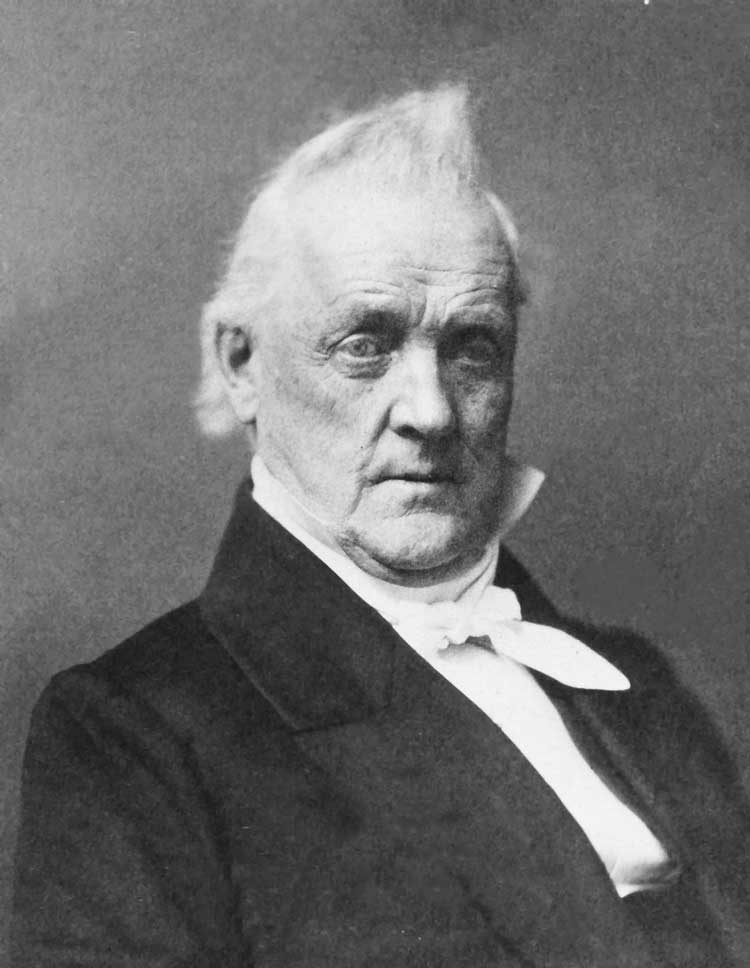
Leonard’s students believed, the longtime Indiana Normal School preceptress having regaled them with the story over the years. Newspapers of the day even reported on the romance, which supposedly began while Leonard was teaching at Millersville Normal School, not far from Buchanan’s Wheatland residence in Lancaster County, and continued after she was hired at INS.
“Their affair waxed warm and the attachment grew stronger,” noted a 1911 Johnstown Democrat account. “The climax in the little affair…was reached one clear moonlight night in early summer, when both happened perchance to be at Indiana Normal. They were seated beneath a budding elm tree, which like themselves gave promise of reaching to still greater heights.”
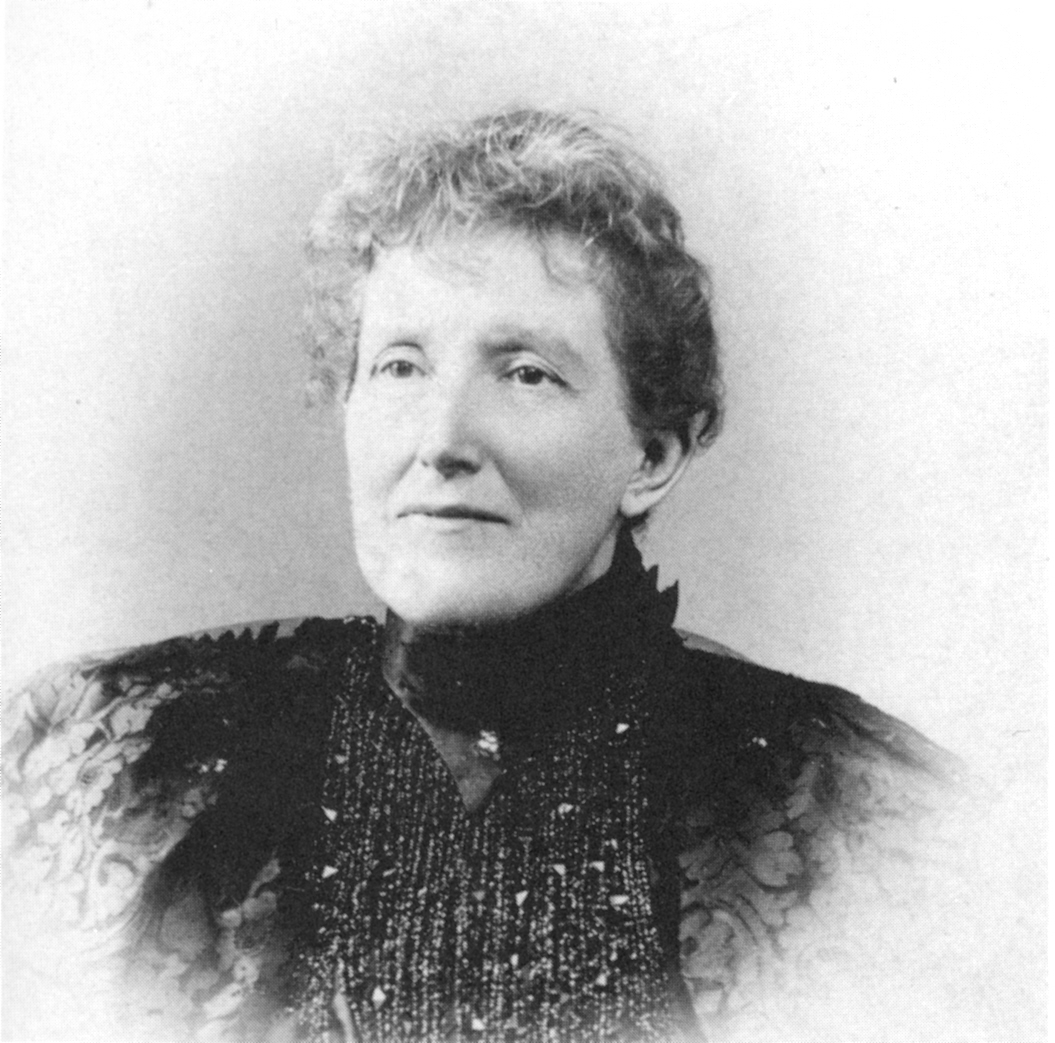 Buchanan, according to the article, popped the question. Leonard declined, presumably because she preferred to devote her life to education. Fact is, the campus rendezvous chronicled in the Democrat never happened. Buchanan couldn’t have visited INS—he died in 1868, seven years before the school was founded.
Buchanan, according to the article, popped the question. Leonard declined, presumably because she preferred to devote her life to education. Fact is, the campus rendezvous chronicled in the Democrat never happened. Buchanan couldn’t have visited INS—he died in 1868, seven years before the school was founded.
However, it’s possible they were acquainted.
“I would be surprised if they weren’t,” said Charles Cashdollar, IUP professor emeritus of history. “Put it this way—she’s teaching American history at Millersville, and there’s a former president four miles away. She’s going to find a way to meet him. So, okay, I’m convinced they knew each other.”
But did Buchanan, described in the Democrat piece as a “dashing youth,” though nearly 50 years Leonard’s senior, really offer her his hand in marriage?
“She says he proposed—she always told her students that,” Cashdollar said. “What I don’t know, and I don’t think we ever will, is whether it was done playfully or seriously. I mean, you could imagine the conversation: Why don’t you marry me, give up that teaching job at Millersville, come move in here? You know, kind of bantering, flirting, whatever. So who knows?
“But all of the stories about his proposing under an elm one day on the Indiana campus are hogwash.”
